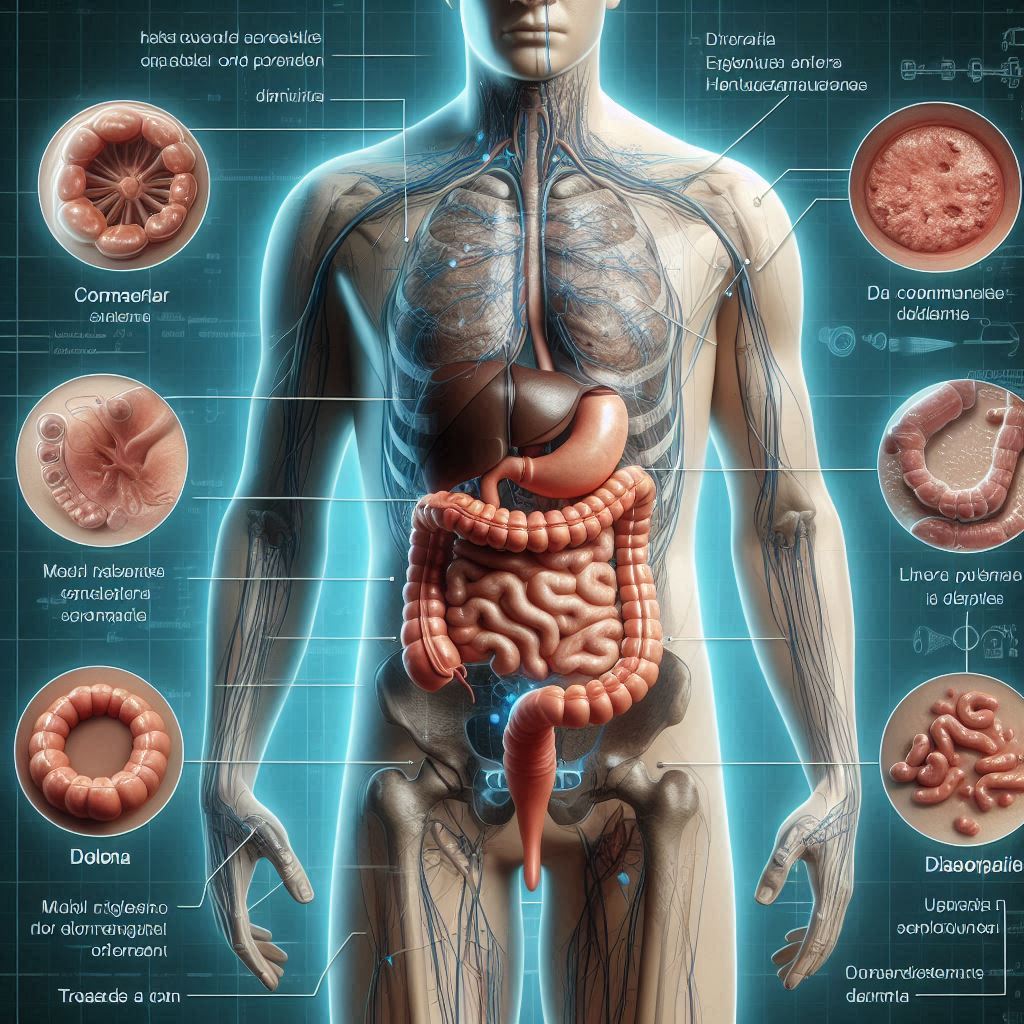Diarrhea: Causes, Symptoms, and Treatments

Diarrhea is a common condition that affects millions of people worldwide. It is characterized by the frequent passage of loose or watery stools, which can be accompanied by other symptoms such as abdominal pain, nausea, and vomiting. Although it often resolves on its own, understanding the causes, symptoms, and treatments of diarrhea is crucial for effective management.
This article explores the various aspects of diarrhea, including its common symptoms, potential causes, diagnosis methods, treatment options, and prevention strategies. By the end, you will have a comprehensive understanding of this condition.
What is diarrhea?
Diarrhea is defined as the increase in the frequency of bowel movements, resulting in loose, watery stools. It can occur as a standalone symptom or in conjunction with other gastrointestinal issues. The condition is generally categorized into acute, persistent, and chronic types.
Acute diarrhea usually lasts for a few days and is often caused by infections, while chronic diarrhea can persist for a month or longer, possibly indicating underlying health issues such as irritable bowel syndrome (IBS) or celiac disease.
Understanding the characteristics of diarrhea helps in recognizing when to seek medical attention, especially if it is severe or prolonged.
What are the common symptoms of diarrhea?
The symptoms of diarrhea can vary in severity and may include:
- Frequent loose or watery stools
- Abdominal cramps
- Nausea and vomiting
- Fever
- Signs of dehydration, such as dry mouth and dizziness
In children, symptoms can escalate quickly, making it essential to monitor for symptoms of dehydration due to diarrhea. This includes increased thirst, less frequent urination, and lethargy.
Recognizing these symptoms early can lead to prompt treatment and prevent complications, particularly in vulnerable populations such as the elderly and young children.
What causes diarrhea?
Diarrhea can be triggered by a variety of factors, including:
- Viral infections, such as gastroenteritis
- Bacterial infections from pathogens like Salmonella and E. coli
- Parasitic infections
- Food intolerances or allergies
- Medication side effects
In children, the causes of diarrhea often involve dietary issues or infections. It is crucial to identify the cause to tailor the appropriate treatment.
Other contributing factors may include stress, certain medical conditions, and changes in diet. Chronic diarrhea often requires more in-depth evaluation, as it may indicate serious underlying health problems.
How is diarrhea diagnosed?
Diagnosing diarrhea typically involves a thorough medical history and physical examination. Your healthcare provider may ask about:
- Duration and frequency of diarrhea
- Presence of other symptoms
- Recent travel or dietary changes
In some cases, diagnostic tests such as stool culture or blood tests may be necessary to identify the underlying cause. This is particularly important for persistent or severe cases.
By understanding the diagnostic process, patients can prepare for potential evaluations and treatments that may be recommended.
How is diarrhea treated?
Treatment for diarrhea depends on the severity and underlying cause. Common approaches include:
- Oral rehydration solutions (ORS) to prevent dehydration
- Over-the-counter antidiarrheal medications
- Dietary adjustments, such as the BRAT diet (bananas, rice, applesauce, toast)
In cases where diarrhea is caused by a bacterial infection, antibiotics may be prescribed. It is also important to replace lost fluids and electrolytes to support recovery.
For children, particularly those under five, zinc supplementation can help reduce the duration and severity of diarrhea.
Can diarrhea be prevented?
Preventive measures can significantly reduce the risk of diarrhea. Key strategies include:
- Practicing good hand hygiene, especially after using the restroom
- Avoiding contaminated food and water
- Vaccination against rotavirus for infants
Additionally, educating children about hygiene can help prevent the spread of infections that lead to diarrhea.
By adopting these preventive measures, individuals can lower their risk of experiencing diarrhea, thus promoting overall health.
What are the complications of diarrhea?
While most cases of diarrhea are mild and resolve without complications, severe diarrhea can lead to serious health issues, particularly dehydration. Symptoms of dehydration may include:
- Extreme thirst
- Dry skin and mucous membranes
- Decreased urine output
It is crucial to seek medical attention if you notice signs of severe diarrhea, especially if accompanied by high fever or blood in stools. These symptoms may indicate a more serious condition that requires immediate treatment.
Long-term complications can arise from persistent diarrhea, including malnutrition, electrolyte imbalances, and disruption of the gut microbiome. Early intervention and proper management are essential.
Frequently asked questions about diarrhea
What is diarrhea causes symptoms and treatment?
Diarrhea is characterized by increased frequency of loose or watery stools, often caused by infections or dietary triggers. Symptoms include abdominal cramps, nausea, and signs of dehydration. Treatment typically focuses on rehydration, dietary modifications, and medications when necessary.
What is the main treatment for diarrhea?
The main treatment for diarrhea involves replenishing lost fluids and electrolytes, primarily through oral rehydration solutions. Over-the-counter medications may also be used to alleviate symptoms. If an underlying infection is present, specific treatments may be required.
What is the fastest way to stop diarrhea?
The fastest way to stop diarrhea is by focusing on rehydration and dietary changes. The BRAT diet can be effective, and consuming clear liquids is crucial. Medications may also provide symptomatic relief, but it's essential to address the underlying cause for long-term resolution.
How do I know if diarrhea is serious?
You should seek medical attention if diarrhea lasts more than two days, is accompanied by high fever, or contains blood. Additionally, signs of dehydration, such as excessive thirst and decreased urine output, indicate a serious condition that requires prompt medical evaluation.

Leave a Reply